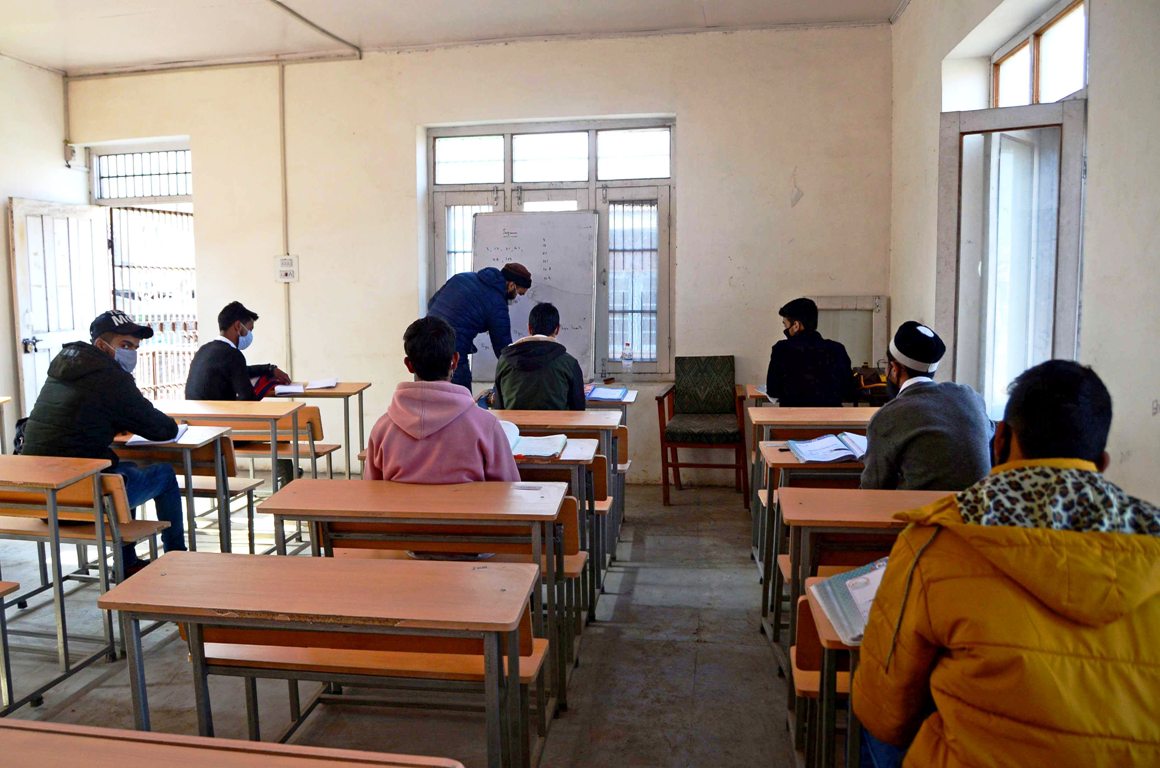KL Report
SRINAGAR
While appreciating the commercial banks operating in the state for progress made in the field of deposit mobilization and credit expansion, the Minister for Finance, Abdul Rahim Rather Thursday urged for redoubled efforts to improve their CD Ratio, which, he said was is yet much below the national bench mark of 60%. However, he said, as a result of the efforts made by the Member Banks in this direction, the CD Ratio has improved to 44.58% as against the previous year’s figure of 36.51%, which, of course was laudable.
Speaking at the 93rd meeting of J&K State Level Bankers Committee (SLBC), held at Sher-i-Kashmir International Convention Complex, Srinagar, the Finance Minister said that the deposits as on ending March 2014 have grown by about 12% over the corresponding figure for the previous financial year, while the credit size has grown by about 37%. He said the expansion of credit size is also in line with the trends noticed in the cumulative performance of all the Member Banks right from the first quarter of the year.
Chief Secretary, Iqbal Khanday, Regional Director (J&K) RBI, K. K. Saraf, Principal Secretary Planning and Development, B. R. Sharma, Principal Secretary, Finance, B. B. Vyas, Chairman J&K Bank, Mushtaq Ahmad, President J&K Bank, S. L. Bhat, General Manager, NABARD, Administrative Secretaries and Heads of various departments, senior functionaries of State Government, SIDBI, Public sector Banks, Regional Rural Banks, State/Central Cooperative Banks and representatives of other institutions.
Rather said the Agriculture sector advances have improved marginally as a share in the total advances and substantially as a share in the priority sector advances adding that it is heartening to note that the advances to the weaker sections have also improved as a percentage of total priority sector advances. “However, there is a declining trend in the share of MSE in total priority sector advances”, Rather pointed out while impressing upon the commercial banks to pay special attention towards MSME sector because it holds a high potential of generating employment for the educated youth.
He asked the Commercial Banks operating in the State to formulate coordinated Corporate Social Responsibility (CSR) Plans for J&K State on priority basis according to the directions by the Governor, Reserve Bank of India in the SLBC meeting held in May last year at Srinagar. “As no progress in this regard has been reported so far as is indicated by the agenda papers for today’s SLBC meeting, I would urge upon all the concerned Member Banks to initiate the requisite action without any further delay so that these CSR plans can be implemented during the current financial year in a coordinated fashion to make some noticeable impact on the society”, Rather added.
The Minister said that it was satisfactory to note that phase-I of the Swabhimaan Campaign or Financial Inclusion Plan for coverage of villages with population of over 2000 has been successfully completed by all the concerned banks, but there is some little gap between the total number of households to be covered and the number of FI accounts actually opened up to 31st March, 2014. He hoped that this gap shall be also removed by all the concerned banks, particularly by the J&K Bank in whose case the reported gap appears to be fairly significant. He said it was equally heartening to know that the targets fixed for the first two financial years under the FIP Phase-II have been cumulatively exceeded by the concerned banks.
Rather said the target of 100% coverage of farmers of our state under the Kissan Credit Card (KCC) scheme has been repeatedly slipping out adding that by the close of the financial year, which was the last extended target date for achieving 100% coverage of farmers, the progress reported is only about 73%. He impressed upon the J&K SLBC to discuss the reasons for the repeated slippages of the target dates at length and hammer out positive and practical solutions to remove all the bottlenecks in this regard.
Rather asked the J&K Bank to extend Electronic Benefit Transfer (EBT) scheme to the all remaining 16 districts of the state within the current financial year as this scheme is a landmark step in direction of management of all programmes involving government subsides and financial benefits to the weaker sections of the society. This work has been entrusted to the J&K Bank in November, 2013 and stands successfully implemented in the six pilot districts of the state in respect of the Old-Age Pension Scheme.
Rather expressed his satisfaction that the branch expansion plans of all concerned banks and the activities of the Financial Literacy Centers (FLCs) and Rural Self Employment Training Institutes (RSETIs) of SBI and J&K Bank are progressing satisfactorily, adding that the concerned officers of the government should ensure that the land for these RSETIs which already stands identified in a good number of districts should be transferred to the respective banks, namely J&K Bank and Sate Bank of India without any further delay so that permanent structures are raised by them in the interest of ensuring proper functioning of RSETIs.
Giving a brief account of credit disbursement in J&K during last financial year under Action Credit Plan (ACP), the Chairman J&K Bank said that 42 Banks operating in the state with a network of 1831 branches as on 31st March, 2014 have extended a total credit of Rs. 10, 268.58 crore registering achievement of 63% of the ACP target in financial terms and 53% in physical terms. This includes priority sector credit of Rs. 5701.15 crore (56% achievement of Annual Target) favouring 3, 06,919 beneficiaries and non-priority credit sector of Rs. 4,567.43 crore disbursed in favour of 1,06,569 beneficiaries. With credit disbursement of Rs. 5701.15 crore to the priority sector credit, J&K Bank has been the major contributor (its share 63.48%) in financial terms followed by SBI with contribution of Rs. 563.36 crore and PNB with Rs. 233.87 crore.
On this occasion, the Minister also released Financial Literacy Guide to be used by branch managers of rural banks and lead district managers for their monthly financial literacy camps.















